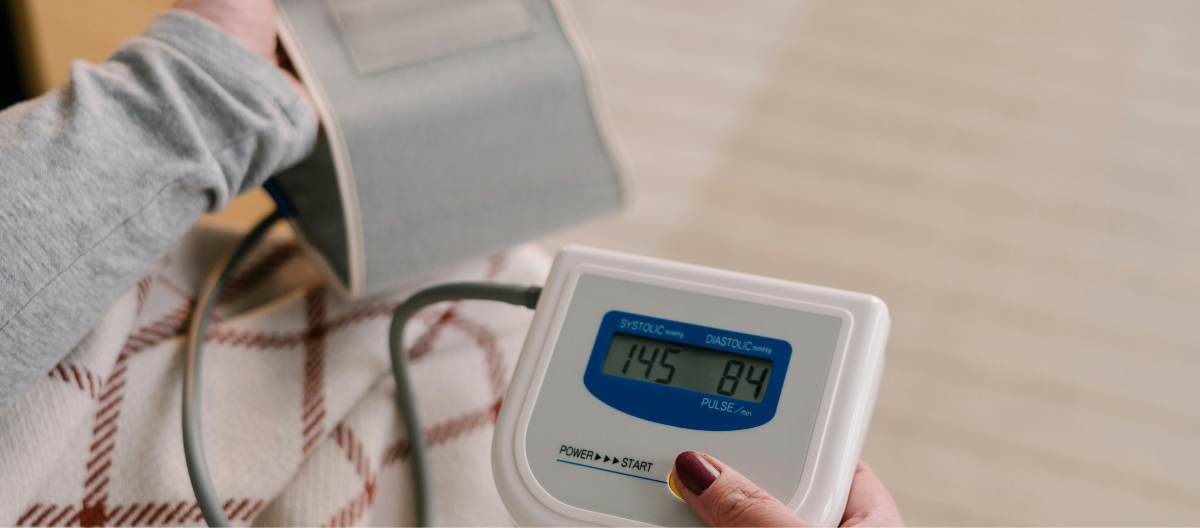High blood pressure, or hypertension, is a common health condition that occurs when the force of the blood against your artery walls is consistently too high. Over time, this increased pressure can lead to serious health issues, including heart disease, stroke, and kidney problems. Here’s what you need to know about high blood pressure, including how to manage and prevent it.
Understanding High Blood Pressure
Blood pressure is measured in millimeters of mercury (mm Hg) and is recorded as two numbers:
Systolic Pressure (Top Number): This measures the pressure in your arteries when your heart beats.
Diastolic Pressure (Bottom Number): This measures the pressure in your arteries when your heart is at rest between beats.
Normal Blood Pressure: Less than 120/80 mm Hg
Elevated Blood Pressure: Systolic 120-129 mm Hg and Diastolic less than 80 mm Hg
Hypertension Stage 1: Systolic 130-139 mm Hg or Diastolic 80-89 mm Hg
Hypertension Stage 2: Systolic 140 mm Hg or higher or Diastolic 90 mm Hg or higher
Hypertensive Crisis: Systolic higher than 180 mm Hg and/or Diastolic higher than 120 mm Hg (requires immediate medical attention)
Causes and Risk Factors
High blood pressure can be caused by a variety of factors, some of which are within your control, while others are not.
Common Risk Factors:
- Age: The risk of high blood pressure increases as you age.
- Family History: High blood pressure often runs in families.
- Obesity: Excess weight increases the strain on your heart, leading to higher blood pressure.
- Lack of Physical Activity: Sedentary lifestyles contribute to weight gain and increased blood pressure.
- Poor Diet: Diets high in salt (sodium), fat, and sugar can raise blood pressure.
- Smoking: Tobacco use increases blood pressure and damages blood vessels.
- Alcohol Consumption: Drinking too much alcohol can raise blood pressure.
- Stress: Chronic stress may contribute to high blood pressure.
- Chronic Conditions: Conditions like diabetes, kidney disease, and sleep apnea can increase the risk of hypertension.
Symptoms of High Blood Pressure
High blood pressure is often called the “silent killer” because it typically has no symptoms. Many people with hypertension are unaware they have it until it’s discovered during a routine checkup or after a serious complication occurs.
Possible Symptoms in Severe Cases:
Headaches, Shortness of breath, Nosebleeds, Dizziness, Chest pain
However, these symptoms are not specific and usually occur only when blood pressure has reached a dangerously high level.
Complications of Untreated High Blood Pressure
If left untreated, high blood pressure can lead to serious and potentially life-threatening complications.
Heart Disease: High blood pressure can cause the arteries to harden, leading to atherosclerosis, heart attack, or heart failure.
Stroke: Hypertension can lead to the rupture or blockage of arteries that supply blood to the brain.
Kidney Damage: High blood pressure can damage the blood vessels in the kidneys, leading to kidney disease or failure.
Vision Loss: Hypertension can cause damage to the blood vessels in the eyes, leading to vision problems or blindness.
Aneurysm: High blood pressure can weaken blood vessels, causing them to bulge and potentially rupture.
Managing High Blood Pressure
If you have high blood pressure, it’s crucial to manage it effectively to prevent complications. Management typically involves lifestyle changes, medication, or a combination of both.
Lifestyle Changes:
Healthy Diet: Follow the DASH (Dietary Approaches to Stop Hypertension) diet, which is rich in fruits, vegetables, whole grains, and low-fat dairy, and low in saturated fat and cholesterol. Reducing sodium intake is particularly important.
Regular Exercise: Aim for at least 150 minutes of moderate-intensity exercise per week, such as walking, cycling, or swimming.
Weight Management: Losing even a small amount of weight can help reduce blood pressure.
Limit Alcohol and Tobacco: Reduce alcohol intake and quit smoking to lower blood pressure and improve overall health.
Stress Reduction: Practice stress management techniques, such as meditation, deep breathing exercises, or yoga.
Medications:
Diuretics: Help your body eliminate excess sodium and water to reduce blood pressure.
Beta-Blockers: Reduce the heart rate and the amount of blood your heart pumps, lowering blood pressure.
ACE Inhibitors: Help relax blood vessels by blocking the formation of a natural chemical that narrows blood vessels.
Angiotensin II Receptor Blockers (ARBs): Help relax blood vessels by blocking the action of a natural chemical that narrows blood vessels.
Calcium Channel Blockers: Prevent calcium from entering heart and blood vessel muscle cells, which helps to relax blood vessels.
Other Medications: In some cases, doctors may prescribe other medications or combinations of drugs to manage blood pressure effectively.
Preventing High Blood Pressure
Even if your blood pressure is normal, taking steps to prevent hypertension can help you maintain your health.
Maintain a Healthy Diet: Focus on eating a balanced diet with plenty of fruits, vegetables, and whole grains. Reduce salt, saturated fat, and sugar intake.
Exercise Regularly: Stay active to maintain a healthy weight and keep your heart and blood vessels strong.
Monitor Your Blood Pressure: Regularly check your blood pressure, especially if you have risk factors. Home monitoring devices can help you keep track between doctor visits.
Limit Alcohol and Avoid Smoking: Reducing alcohol consumption and quitting smoking can help prevent the onset of hypertension.
Manage Stress: Practice relaxation techniques to manage stress, which can contribute to high blood pressure.
When to See a Doctor
Regular checkups are essential for detecting high blood pressure early. You should also see a doctor if you experience symptoms that may be related to hypertension or if you have risk factors that put you at higher risk for developing high blood pressure.
Regular Screenings: Adults over 18 should have their blood pressure checked at least every two years, and more frequently if they have risk factors for hypertension.
Monitoring at Home: If you have been diagnosed with high blood pressure, your doctor may recommend home monitoring to keep track of your blood pressure between visits.


